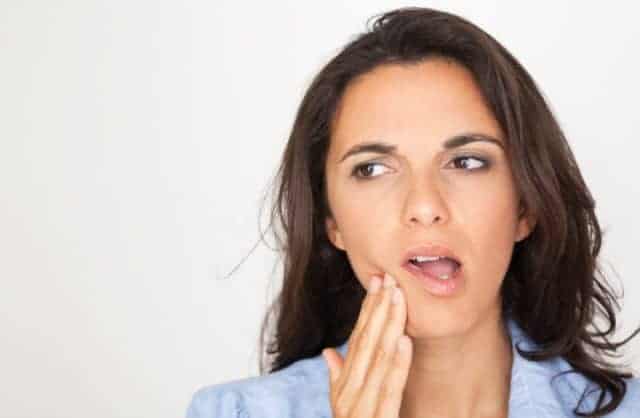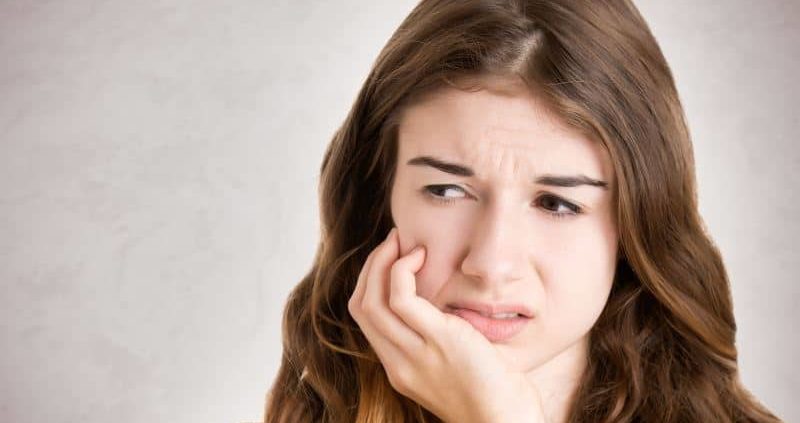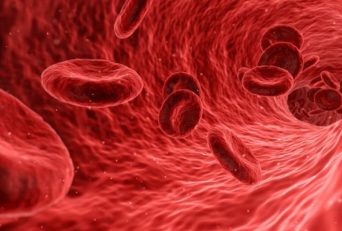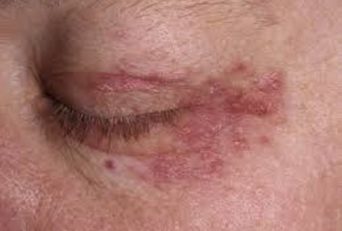Blood blister in the mouth is caused by various reasons such as breaking of blood lining inside the mouth or by some other trauma.
Blood blisters in the mouth appear where the blood vessels below the lining of the mouth rupture. They may form on the walls of the mouth, inside the cheek, tongue, and gums.
These can be quite painful and may hamper the chewing and swallowing of food.
This article is your guide to understanding blood blisters, taking you through its causes, cures and prevention measures.
You will also find numerous effective home remedies that will help you.
A normal blister is a bubble filled with a transparent fluid called serum. However, a blood blister is one that is filled with blood and other fluids. Such blisters form in areas of the skin tissues where the blood capillaries are damaged.
Blood blisters in the mouth appear where the blood vessels below the lining of the mouth rupture. They may form on the walls of the mouth, inside the cheek, tongue, and gums.
These can be quite painful and may hamper the chewing and swallowing of food.
This article is your guide to understanding blood blisters, taking you through its causes, cures and prevention measures.
You will also find numerous effective home remedies that will help you.
Table of Contents
What Does A Blood Blister Look Like?
A blood blister in the mouth appears to be a small red bump or bubble filled with blood.
They occur in various sizes- some are small, while others can be larger than half an inch.
While blood blisters in the mouth may appear intimidating, they normally clear off in a few days’ time.
Blood blisters in mouth appear above and below the tongue, on the side cheeks and also on inside wall of the lips.
What Causes Blood Blisters In The Mouth?
Why there is a blood blister in your mouth?
Let us first understand what causes blood blisters in the mouth, to be able to deal with them better.
Unlike normal blisters, a blood blister results from the rupture of a blood vessel under the skin’s surface. When this happens, blood seeps out and forms a pool under the lining of the mouth. This pressure causes an outward bulge on the skin.
Take a look at some of the common causes of blood blisters:
i. Trauma Or Injury
Blood blister inside the mouth happens mainly due to poor eating habits, such as eating food that is too hot or hard.
A major cause of trauma is biting the inside of the cheek or tongue. This usually happens when a person is distracted while eating, through activities like watching TV or engaging in a conversation.
ii. Ulcers In The Mouth
Of the two types of oral ulcers, canker sores are likely to cause blood blisters. These are a result of invasion by microorganisms in the mouth or as a side effect of the medication.
They may cause blood blisters to form inside the cheeks, under the tongue, and on the gums.
iii. Vitamin Deficiency
Blood blisters in the mouth can form because of vitamin deficiency, particularly vitamin C and vitamin B12.
iv. Angina Bullosa Haemorrhagica (ABH)
Commonly found in elderly people, ABH is a condition where blood blisters appear in the inner cheek, roof of the mouth or under the tongue, without a specific cause. These blisters soon burst, forming an open wound. These usually heal within days.
v. Allergy
Sometimes blood blisters form in the mouth as an allergic reaction to foods consumed or any medication or treatment. A typical example of this condition is the allergy to foods with high citrus content.
vi. Low Platelet Count
Platelets are a component of the blood that helps in clotting. With insufficient platelets, blood does not clot properly and collects under the skin. This puts you at the risk of developing blood blisters.
vii. Smoking And Alcohol Consumption
Use of alcohol can form ulcers in the mouth, which may lead to blood blisters. These usually form inside the cheeks, under the tongue and lips. Smoking may produce allergic reactions in the form of blisters in the mouth and cheek.
viii. Dental Procedures
Dental procedures like tooth extraction may cause a blood clot that leads to blood blister formation. In this case, you need to take care that it doesn’t get infected or collect pus.
ix. Other Causes
Other factors that lead to blood blisters in the mouth include- infection in the mouth, mouth diabetes, stress, hormonal changes, Behcet’s disease, eating extremely acidic foods, bowel disease, high blood pressure, and neutrophil deficiency.
Two Other Causes That We Shall Discuss In Detail Are
Mouth Cancer
Blood blisters may form in the mouth because of oral cancer. Mouth cancer usually begins in the mucous membrane of the mouth.
As the mucus lining is attacked by the cancer cells, cells in the lining die. Bumps may appear and get filled with blood and dead cells, leading to the formation of blood blisters.
This condition affects the gums, tongue, the roof of the mouth, throat, inside the cheeks, tonsils and salivary glands.
Causes Of Mouth Cancer
Here are a few factors that are associated with the development of oral cancer:
- Regular use of tobacco or alcohol
- Prolonged exposure to the sun
- Oral diseases
- Poor dental hygiene
- Genetic build
- Chewing the lips or cheeks as a habit
- Leukoplakia
- Herpes simplex infection
- Human papillomavirus infection
- Improper diet
Cancer develops due to genetic mutation, causing cells to replicate and grow beyond control. While the exact cause of this mutation is not known, some factors increase the chances of developing oral cancer.
Oral cancer is more likely to develop in males above the age of 45.
Heavy smoking and consumption of alcohol also increase the chances of oral cancer. The risk of smokers developing the condition is found to be three times higher than those who do not.
Increasing age also puts an individual at a higher risk of mouth cancer.
Exposure to certain chemicals may lead to mouth cancer.
Diets that have insufficient fruits and vegetables, high amounts of red meat or processed meat, and fried foods have been linked with increased risk of developing cancer.
People who come from families with previous cases of cancer are likely to have oral cancer due to their genetic composition.
Symptoms Of Mouth Cancer
- A lump or mass in areas of the mouth, which may or may not be painful
- Persistent blood blisters
- Ulcers or mouth sores that don’t heal. These may bleed in some cases.
- Numbness- loss of sensation
- Painful to move the tongue
- Discomfort or pain while swallowing
- Sore throat
- Loose teeth
- Loss of taste
- Pain in the jaws
- Pain in the neck or ear
While these symptoms may not necessarily indicate mouth cancer, it is advisable to consult a doctor and get it diagnosed.
Oral Herpes
Individuals infected with the herpes simplex type 1 virus may develop blood blisters in the mouth, particularly inner cheek, the roof of the mouth, tongue, gums, and lips.
Causes Of Oral Herpes
The herpes simplex virus is contagious, means that it can be passed on.
Direct contact with the virus, by touching an open infected sore, can result in the disease.
Another common means of infection is the sharing of objects like utensils, towels, razors, lip balms and similar products.
The virus can be contracted through sexual contact with an infected person.
Parents infected with the herpes simplex virus may pass it on to their children through day-to-day routine activities.
Factors such as sun exposure, fever, stress, menstruation, may trigger the recurrence of the disease.
Factors That Put A Person At An Increased Risk Of Being Affected By Oral Herpes Are
- Sex without using protection, like condoms
- Sexual activity with multiple partners
- Weak immune system
- The unborn child of an infected pregnant woman.
Symptoms Of Oral Herpes
Symptoms begin to appear 2-10 days after contracting the virus. These symptoms can last up to 3 weeks.
- Itching of lips or area around the mouth
- Difficulty in swallowing
- Sores in the mouth- mainly on the tongue, gums, cheeks, throat, roof of the mouth, and lips.
- Swollen or bleeding gums
- Blisters that form in clusters, usually with a clear to the yellowish fluid inside. These may also break open
- Burning sensation
- Sore throat
- Fatigue
- Fever
- Muscle ache
- Headache
- Swollen glands or lymph nodes
Recurring Blood Blisters In The Mouth
Blood blisters that do not heal by themselves and those that recur could indicate health conditions that require medical attention.
They could be a sign of infection or oral herpes. Recurrent blisters in the mouth may be a reaction to some medication.
Sometimes rare genetic disorders like epidermolysis bullosa or pemphigoid could be the reason for prolonged blood blisters. In some cases, it is found to be an indicator of oral cancer.
How To Treat Blood Blisters In The Mouth And Cheek?
Blood blisters in the mouth can be a menace, causing discomfort while eating and painful while brushing your teeth. So what should you do about it?
Typically, blood blisters in the mouth tend to disappear on their own and do not require specific medical treatments.
Consulting a doctor would help to identify the nature of the blood blisters and what caused them. This would help you to decide the appropriate mode of treatment.
In case of extreme pain and discomfort, the doctor may prescribe painkillers.
They may also suggest medication to soothe the blisters, recommend mouthwashes or corticosteroids to help cure the condition or prescribe other treatments.
Here Are A Few General Measures That You Can Take
1) Restrain from activities that apply pressure to the area with blisters.
2) If the blood blister is caused by a vitamin deficiency, ensure that you take sufficient amounts of it through diet or supplements. Follow a well-balanced diet.
3) Avoid foods that are very spicy, salty or acidic. These can cause further damage to the lining of the mouth, and prevent healing.
4) Refrain from using toothpaste, mouthwashes and other products that can cause irritation or even lead to the formation of blood blisters in the mouth. It is advisable to avoid toothpaste containing high contents of sodium lauryl sulfate.
5) Don’t pop the blister. Popping or squeezing a blood blister will increase your chance of catching a bacterial infection, and can further aggravate your condition. This will also increase the time it takes to heal. Hence, do not attempt to drain the blister.
6) It is essential that you maintain good oral hygiene at all times. You can avoid using a toothbrush if you have blood blisters in your mouth. You may gently clean your mouth with your fingers or use a mild mouthwash.
Try home remedies to get some relief from discomforts.
Home Remedies To Get Rid Of Blood Blisters In The Mouth

If the cause of blisters inside your mouth is mild, you may treat it with home remedies.
Here are some treatments you can easily do at home, to get rid of those unpleasant blood blisters in your mouth:
1. Ice Pack
An ice pack constricts the blood vessels in the area, to reduce the swelling and bleeding.
Take some ice cubes in a clean cloth. Place the pack on the blister on and off, for about 10 minutes. Repeat this a few more times. You can do this at least twice a day. Take care not to put the ice directly on the skin, as it may cause an ice burn.
2. Cucumber
Cucumber is known for its soothing effect and is used to control many skin problems. It contains silica that strengthens connective tissues in the skin. It helps to soothe pain and inflammation caused by blood blisters in the mouth.
Place a thick slice of chilled cucumber on the blister. Keep it on for a few minutes. You can do this around four times daily.
You may also drink a glass of fresh cucumber juice every day.
3. Aloe Vera
Aloe vera can relieve inflammation and provide a cooling effect.
Take some fresh aloe vera gel and apply it to the affected area. Repeat this 4-5 times a day, until it heals.
4. Turmeric
Turmeric has antimicrobial properties. Its medicinal properties have been widely used to cure many skin problems.
You can make a paste of turmeric with honey or rose water. Apply this paste on the blood blisters. Rinse the area with warm water after 15 minutes. You can do this twice or thrice a day.
You may also drink a glass of warm milk with a teaspoon of turmeric, at bedtime.
5. Sandalwood
Sandalwood aids the healing process and formation of new skin cells. It is also used for its anti-inflammatory properties.
Make a paste of sandalwood powder and rosewater to apply on the blisters. After it dries up, wash the area with water. You may do this 3-4 times daily.
6. Witch Hazel
Witch hazel reduces inflammation, helping the blister to dry and heal faster.
Take a small quantity of witch hazel extract and apply it on the blister. Allow it to dry. Repeat this four times a day, until the blister heals. Alternatively, you can use a paste of witch hazel with water on the blister.
7. Garlic
Garlic has anti-inflammatory and antibiotic properties. It can protect the blister from microbes and prevent it from being infected.
Make garlic tea by boiling five crushed cloves of garlic in hot water. Allow it to cool. Then soak some cotton in the tea and gently place it on the blisters.
8. Ginger
Ginger is a cure for skin problems and relieves inflammation. It is an effective home remedy to treat blood blisters in the mouth.
You can take some fresh ginger extract to apply on the affected area. Do this 3-4 times a day for quick healing.
You can also make ginger tea with few slices of ginger in hot water. After it cools down, use it to rinse the mouth.
Using a paste of equal quantities of ginger and turmeric powder is also helpful. Keep it on for 10-15 minutes and rinse with warm water.
9. Epsom Salt
Epsom salt is rich in magnesium and sulfate, which relieve pain and help to heal the blood blisters.
Make a solution of Epsom salt in warm water. You can use this to rinse your mouth.
You can also use a paste of Epsom salt in water to be applied on the blister. Rinse off after 15 minutes.
10. Chamomile
Chamomile has astringent properties and helps to heal the blisters and wounds. It also prevents infections.
You can use chamomile tea to treat blood blisters in the mouth. Put 2-3 teaspoons of chamomile in hot water. Soak some cotton in the tea after it cools down and gently place on the blisters.
- Chew few basil leaves, twice a day, to reduce inflammation and enable quick healing.
- Apply raw honey on the blister.
- Chew cardamom grains.
- Boil coriander seeds in water. Use this to gargle 2-3 times a day.
When Should You Consult A Doctor?
In case of blood blisters that remain for a very long time or keep recurring, it would be advisable to consult a doctor and seek treatment.
If you experience severe pain or extreme difficulties in eating or swallowing, do not hesitate to seek medical attention.
The physician will diagnose it, to identify the underlying cause and prescribe treatments accordingly.
How To Prevent Blood Blisters In Mouth?
Wondering what to do to prevent the formation of blood blisters in the mouth?
Here comes a few precautions and tips.
- Eat with caution. Avoid distractions and chew your food well, to prevent injuring the lining of the mouth.
- Avoid consuming foods and other products that you are allergic to, or seek treatment for your allergy.
- Quit smoking, consuming alcohol and excess use of aerated drinks.
- Ensure sufficient intake of Iron, vitamin C, and vitamin B12. This will reduce chances of blood blisters in the mouth, besides boosting immunity.





